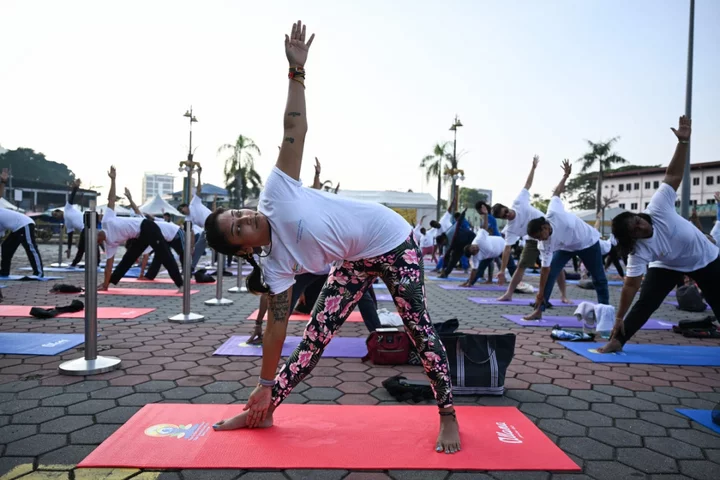
Yoga may reduce seizure frequency in epilepsy patients, scientists claim
Doing yoga may help reduce frequency of seizures in people with epilepsy and lower their anxiety, a new study found. The practice may also improve patients’ overall quality of life by reducing the stigma they feel from having the disease, according to the research, published last week in the medical journal Neurology. “People with epilepsy often face stigma that can cause them to feel different than others due to their own health condition and that can have a significant impact on their quality of life,” study author Manjari Tripathi from All India Institute of Medical Sciences (AIIMS) in New Delhi said. “This stigma can affect a person’s life in many ways including treatment, emergency department visits and poor mental health,” Dr Tripathi explained. In the study, researchers assessed people with epilepsy with an average age of 30 in India. They measured stigma among participants based on their answers to questions such as: “Do you feel other people discriminate against you?” “Do you feel you cannot contribute anything in society?” and “Do you feel different from other people?” About 160 people who met the criteria for experiencing stigma were then identified. These patients had an average of one seizure per week and on average took at least two anti-seizure medications, researchers said. One set of patients were then randomly assigned to receive yoga therapy, which included exercises in loosening muscles, breathing, meditation and positive affirmations. Another set of patients received a sham therapy that mimicked the same exercises, but these participants were not given instructions on two key components of yoga – slow and synchronized breathing, and attention to the body movements and sensations. Both the groups received seven supervised group sessions of 45 to 60 minutes over three months. They were also asked to practice sessions at home at least five times a week for 30 minutes and track their seizures and yoga sessions in a journal. Participants were then followed for an additional three months after their first three months of therapy. People who did yoga were more than four times as likely to have their seizure frequency more than halved after six months than the people who did sham yoga, the study found. Compared to those who did the sham practice, participants who did yoga were more likely to reduce their perceived stigma of the disease, researchers say. People who did yoga were also over seven times more likely to no longer have seizures than those who did the sham practice, according to the study. Researchers also reported a significant decrease in anxiety symptoms among those who did yoga versus people who did not. “The intervention group showed significant improvement in symptoms of anxiety, cognitive impairment, mindfulness and quality of life relative to the control group at the end of follow-up period,” researchers wrote. “Yoga may not only help reduce stigma, but also improve quality of life and mindfulness. Plus, yoga can be easily prerecorded and shared with patients online using minimal resources and costs,” Dr Tripathi said. Citing the main limitation of the study, researchers said the participants self-reported their seizure frequency and they may not have remembered all the information accurately. However, they say the findings “elevate the need to consider alternative therapies and activities for people with epilepsy facing stigma”. Read More Jonnie Irwin says he ‘never thought’ he’d be alive to see his 50th birthday Billy Connolly shares health update on Parkinson’s disease: ‘Every day gets stranger’ What are the symptoms of Parkinson's disease and how can it be treated? Jonnie Irwin says he ‘never thought’ he’d be alive to see his 50th birthday Billy Connolly shares health update on Parkinson’s disease: ‘Every day gets stranger’ What are the symptoms of Parkinson's disease and how can it be treated?
1970-01-01 08:00

Christian Watson's dad blasts Packers fans with Davante Adams stats
Green Bay Packers fans aren't happy with Christian Watson, and the second-year player's father came to his son's defense.
1970-01-01 08:00
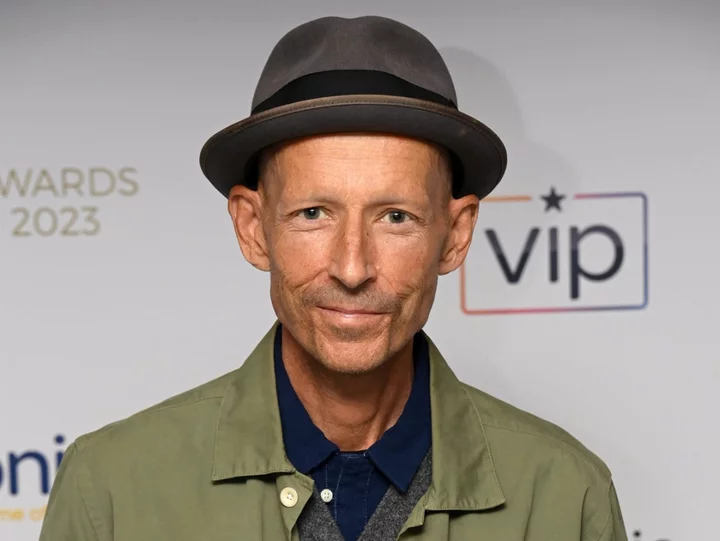
Jonnie Irwin says he ‘never thought’ he’d be alive to see his 50th birthday amid terminal cancer diagnosis
TV star Jonnie Irwin has admitted that he “never thought” he’d be alive to see his 50th birthday, which is next week. Irwin, 49, who is best known for presenting property TV shows A Place in the Sun and Escape to the Country, was diagnosed with terminal cancer in 2022. In January, Irwin threw an early 50th birthday party, ahead of the actual date next week, with a huge part with 170 friends and family. But in a new interview, the presenter has said he will be jetting off on holiday to Spain with his family for his actual birthday. “I never thought I’d be here,” Irwin told The Sun. “I’m really looking forward to some time with [wife] Jess and the boys.” Irwin shares three young sons with his wife, Jessica Holmes. He has been praised for his transparency about his condition, and his experiences with various cancer treatments. Since his diagnosis, Irwin has followed a strict diet and spends one to two hours a day in an O2Worx hyperbaric oxygen tent. Some studies have shown that flooding the body with oxygen does not promote tumour growth and has been linked to preventing cancer growth. In July this year, Irwin discussed his “really good” experience with palliative care, which focuses on improving the quality of life for anyone facing a life-threatening condition. Irwin said that he has been in palliative care since the day he received his terminal cancer diagnosis. He was first diagnosed with lung cancer in August 2020, but only publicly shared the news in November 2022 after the cancer spread to his brain. His hospice experience was a “delight”, Irwin said, challenging his initial perception that such facilities were “very much a boiling hot room full of people who looked frail and towards the end of their days”. In September, the presenter made his long-awaited return to TV when he hosted a new episode of Escape to the Country on BBC One. Looking back at his time in a hospice six months ago, Irwin said he was “on the cusp of death”. “Lying in the hospice, I thought I’d had it,” he told The Sun. ​​“But at my weakest point I thought, ‘This is it, this is the beginning of the end.’” ​​Irwin returned home and resumed his strict diet, drinking protein shakes and spending time in the oxygen tent to attempt to curb the growth of his cancer. “I won’t let cancer define me,” Irwin told the publication from his newly renovated home in Newcastle. “A friend of mine told me, ‘Your body achieves what your mind achieves’, and I want to live by that.” Read More Jonnie Irwin jokes he’s ‘whacked’ after attending The Streets gig in Newcastle Billy Connolly shares health update on Parkinson’s disease: ‘Every day gets stranger’ What are the symptoms of Parkinson's disease and how can it be treated? Billy Connolly shares health update on Parkinson’s disease: ‘Every day gets stranger’ What are the symptoms of Parkinson's disease and how can it be treated? Tracey Emin says she ‘totally accepted death’ following cancer diagnosis
1970-01-01 08:00

Idris Elba to release rap track in aid of knife crime charities
Idris Elba is releasing the rap single 'Knife Bill' in aid of knife crime charities as he continue to campaign on the issue.
1970-01-01 08:00
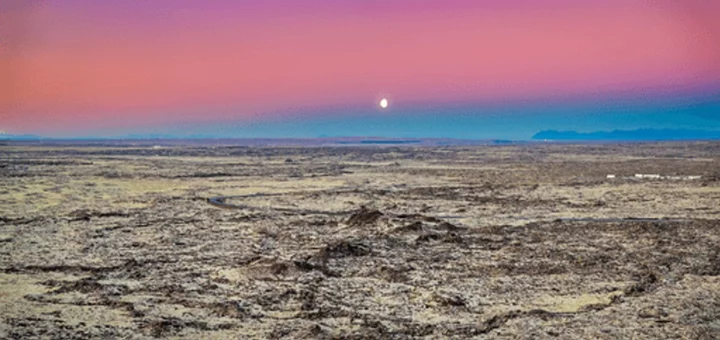
Iceland earthquakes: What are your rights if you are on holiday or are planning to go?
The earth is at its most restless in Iceland right now. The Reykjanes peninsula, southwest of Reykjavik, is seething with seismic activity sparking hundreds of small earthquakes. The town of Grindavík, just 10 miles south of Keflavik International Airport, has been evacuated as a precaution. Yet flights are continuing to arrive and depart as normal. These are the key questions and answers on consumer rights. I am in Iceland. Will I be able to leave? Yes, assuming the international airport remains open. So far operations have been normal. There are 14 arrivals and departures planned for Saturday from and to the UK, with no signs of disruption to flights. You may be keen to leave earlier than booked, in order to guarantee your getaway, but at present you will not be able to switch flights without paying a penalty. A spokesperson for British Airways told The Independent: “Our flights are operating as planned and we continue to monitor the situation closely. “We will be in touch with customers directly should the situation change.” The easyJet statement is very similar: “Our flying schedule is currently operating as normal however we are monitoring the situation closely and should this change we will contact customers directly to advise on their flights.” But didn’t an Icelandic volcano shut down European aviation for a week? Yes. Travellers may remember where they were March 2010, when the Icelandic volcano Eyjafjallajökull erupted. The skies of northern Europe completely closed to passenger aviation for almost a week because of fears that volcanic ash spreading southeast from Iceland could damage aircraft engines and endanger travellers. More than 50,000 flights, with eight million passengers booked to travel, were cancelled. So far in 2023, though, ash has not been an issue in the current geological outburst. What if I am booked on a package holiday? Foreign Office advice stops well short of advising against travel to Iceland, meaning holiday companies can continue to operate as normal – with no automatic right to cancel. The Foreign Office advice to British travellers is that it is “increasingly possible” that a volcanic eruption could occur. The official warning on “volcanic eruption and earthquakes” reads: “Earthquakes and indications of volcanic activity have increased above normal levels on the Reykjanes peninsula, southwest of Reykjavik. “The Icelandic authorities continue to monitor the area closely, particularly the area northwest of Mt Thorbjörn near the Svartsengi power plant and the Blue Lagoon. On 10 November, a Civil Protection Alert was declared after an intense swarm of earthquakes. “The town of Grindavík was evacuated as a precaution. Some roads have been closed and visitors are advised to stay away from the area. “Keflavik International Airport is operating as normal. While there is no current eruption, it is increasingly possible that one could occur.” Until and unless the Foreign Office warns against travel, the assumption is that everything will go ahead as normal. The one exception is for holidaymakers who had planned to stay at the Blue Lagoon – an increasingly popular “wellness” destination, with an upmarket hotel on the site. The Blue Lagoon is currently closed. Only those booked for a stay have the chance to cancel; if you were hoping to pop in as a day visitor for a steamy stop in the volcanic rock pools, you will need to return at some time in the future. Can I claim on insurance? No, unless it is one of the vanishingly rare “cancel for any reason” policies. On standard travel insurance, “disinclination to travel” is not an acceptable reason for a claim. Would you go to Iceland at the moment? Yes, I would relish the opportunity. Late November is an excellent time to visit Iceland for good value. Conditions right now are also excellent for the prospect of a good show to the Northern Lights, which are at a peak of the usual 11-year cosmic cycle. I also know that the Icelandic authorities are expert at handling seismic events, with extremely good monitoring and emergency systems in place. I would book a package holiday, though, knowing that if the earth gets too restless for comfort in the vicinity, I would be able to cancel for a full refund. Read More Iceland earthquakes: Your rights if you are on holiday there or are planning to go Iceland earthquakes: Are flights still running amid fears over volcano eruption? In the Superloop: London’s southbound express bus In the Superloop: London’s southbound express bus Airbnb rules go ‘step too far’ with guidance on how to clean up blood Passenger claims tequila in his luggage came back with ‘shot’ missing after flight
1970-01-01 08:00

Bills call players-only meeting with title window at risk of passing them by
Sean McDermott’s team is in the midst of a rollercoaster season. A member of the Buffalo Bills running back corps decided to address the matter.
1970-01-01 08:00
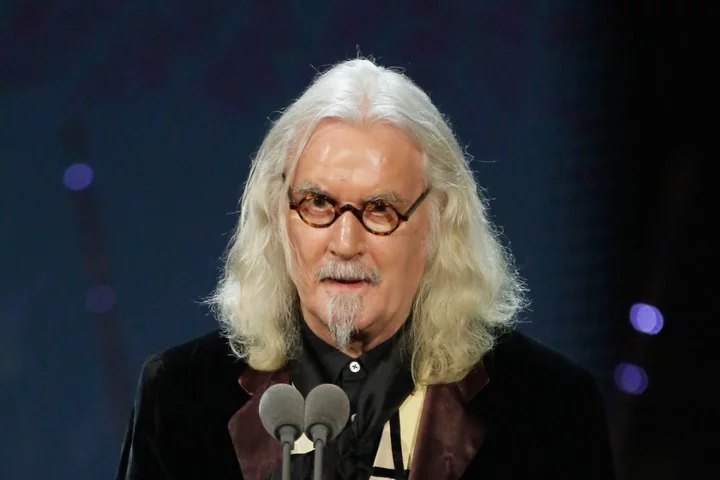
Billy Connolly shares health update on Parkinson’s disease: ‘Every day it gets stranger and more different’
Billy Connolly has said that every day spent living with Parkinson’s disease “gets stranger”, as he shared an update on his health. The Scottish actor, 80, has been living with the condition since 2013, and said that the symptoms and lifestyle impacts of the disease often “creep up” on him. Parkinson’s is a brain disorder that causes unintended or uncontrollable movements, such as shaking, stiffness, and difficulty with balance and co-ordination. Often, the disease can become more severe over time. “Every day it gets stranger and more different,” the retired stand-up comedian told The Times. Connolly said that his newfound love for making drawings, painting and sculptures has helped him navigate the mental health toll of living with the condition. “I don’t know how I would have coped without drawing. It’s taken me out of the scene and put me somewhere else, where I can survey it from a different angle,” he said. “Art has made my life magical at a time when I thought it would be unbearable.” It’s been a decade since Connolly received his Parkinson’s diagnosis. The comedian was walking through the lobby of a Los Angeles hotel in 2013 when a fellow guest, a doctor, stopped him and said he shows physical signs of Parkinsons. This prompted Connolly to visit his doctor. “I’ll never forget what he said: ‘You have the gait of a Parkinson’s man,’” Connolly told the publication. According to Parkinson’s UK, Bradykinesia, which is a common condition among people with Parkinson’s, means slowness and a reduced range of movement when walking. It can make your steps smaller and it can take more time and effort to get around. When Connolly received his official diagnosis, he was also diagnosed with prostate cancer and gallstones in the same week. “It was a helluva week,” he said. “It got funny. My daughter Scarlett was with me in the ambulance on the way to the gallbladder surgery through Manhattan. The sirens were going – nee-naw nee-naw – and she said to me, ‘Is this your first Caribbean cruise?’ That’s a line I always said to her to make her laugh when her surroundings were awkward or boring.” During an interview published in September, it was revealed that Connolly had suffered “a couple of serious falls” and once broke his hip as a result of deteriorating balance. He no longer drives. Despite these growing physical challenges, the What We Did on Our Holiday star maintains a positive outlook on his health. In his memoir, Rambling Man: Life on the Road, which was released earlier this year, Connolly clarified that he doesn’t feel “close to death”. “You see, reports of my recent demise have been greatly exaggerated,” he stated in an extract shared with The Telegraph. “There was a week a few years ago where on Monday I got hearing aids, Tuesday I got pills for heartburn, and Wednesday I received news that I had prostate cancer and Parkinson’s disease. But despite all that, I never ever felt close to dying.” Rambling Man: Life on the Road is available now. Read More What are the symptoms of Parkinson's disease and how can it be treated? Tracey Emin says she ‘totally accepted death’ following cancer diagnosis Nicky Hilton calls out critics who made negative comments about nephew Phoenix’s head What are the symptoms of Parkinson's disease and how can it be treated? Tracey Emin says she ‘totally accepted death’ following cancer diagnosis Nicky Hilton calls out critics who made negative comments about nephew Phoenix’s head
1970-01-01 08:00
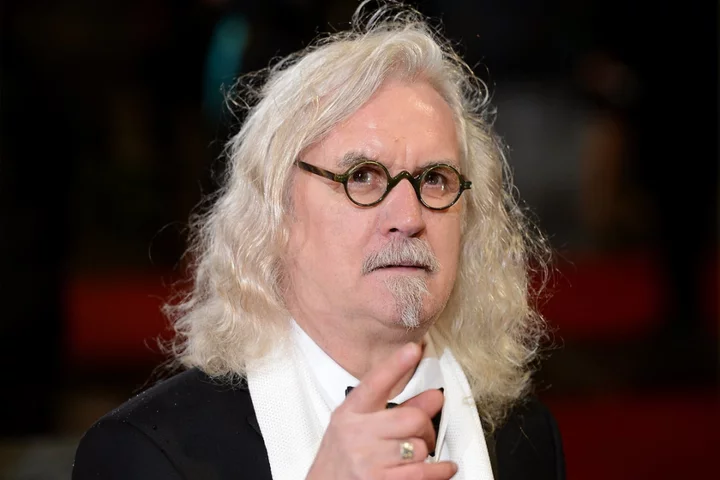
What are the symptoms of Parkinson’s disease and how can it be treated?
Parkinson’s disease is the world’s second most common neurodegenerative disorder, behind Alzheimer’s disease. While it’s unknown exactly why people develop the condition, according to Parkinson’s UK, experts believe its a combination of genetic and environmental factors that contribute to the damage of nerve cells in the brain. So what are the symptoms of Parkinson’s disease and how can it be treated? Here’s everything you need to know. What is Parkinson’s disease? Parkinson’s disease is a degenerative neurological condition. This means that over time the brain of an individual living with the disease becomes more damaged, the NHS explains. A person living with Parkinson’s disease doesn’t have enough of the chemical dopamine in their brain, the Parkinson’s Foundation states. Dopamine is responsible for transmitting signals between nerve cells in the brain. When an individual experiences a loss of nerve cells in the brain, this causes a reduction in the quantity of dopamine in the brain. What are the symptoms? The main symptoms of Parkinson’s disease include involuntary shaking (otherwise known as tremors), movement that’s slower than usual and stiffness in the muscles, the NHS outlines. Other symptoms may include difficulty balancing, nerve pain, incontinence, insomnia, excessive sweating, depression and anxiety. For more information about the symptoms of Parkinson’s disease, visit the NHS here. How many people does it affect? Around 145,000 people in the UK are affected by Parkinson’s disease, Parkinson’s UK explains. This means that around one in every 350 adults is living with the degenerative condition. According to the NHS, symptoms of Parkinson’s usually develop after the age of 50. However, for every one in 20 people affected by the disease, symptoms may appear when they’re under the age of 40. The Parkinson’s Foundation outlines that men are 1.5 more likely than women to be affected by the condition. High-profile individuals to have been diagnosed with Parkinson’s include former US president George H. W. Bush, Back to the Future star Michael J. Fox and The Chase star Paul Sinha. How can it be treated? While there is no known cure for Parkinson’s disease, symptoms may be controlled through treatment. The most common form of treatment used for the condition is medication, Parkinson’s UK states. “Drug treatments aim to increase the level of dopamine that reaches the brain and stimulate the parts of the brain where dopamine works,” the charity explains. The medication used to treat Parkinson’s disease varies according to each patient. This is because as symptoms of the disorder progress, the drugs used to treat the condition may need to be changed. While drug treatment may help to manage Parkinson’s symptoms, it cannot slow the progression of the disease. The NHS explains that those living with Parkinson’s disease may also undergo physiotherapy, occupational therapy, and, in rare cases, brain surgery to treat the condition. For more information about Parkinson’s disease, visit Parkinson’s UK. Read More What are symptoms of coronavirus – and where has it spread? Latest travel updates as coronavirus continues to spread Can face masks really protect you against coronavirus or flu? The dirty truth about washing your hands Billy Connolly shares health update on Parkinson’s disease: ‘Every day gets stranger’ Tracey Emin says she ‘totally accepted death’ following cancer diagnosis Nicky Hilton calls out critics who made negative comments about nephew Phoenix’s head
1970-01-01 08:00
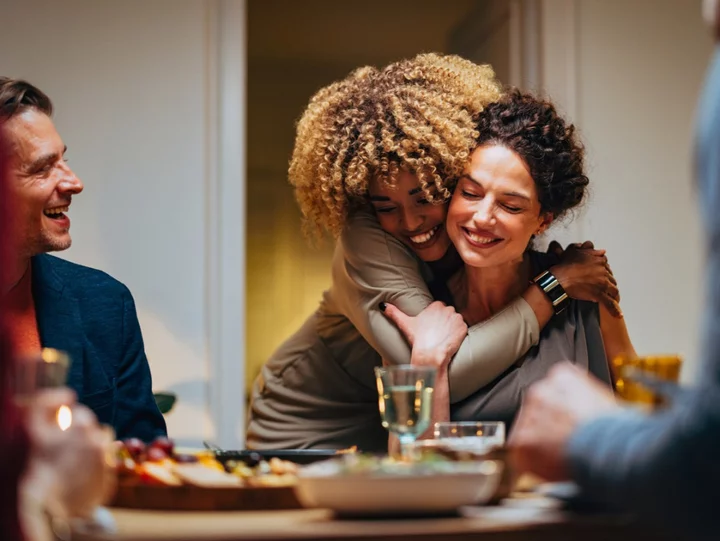
Scientists say monthly visits from family and friends can help you live longer
Scientists have found that visiting friends and family at least once a month can help you live longer. According to a recent study published by the University of Glasgow in BioMed Central Medicine, researchers discovered that there was a correlation between how often a person was visited by their family and friends with their life expectancy. Those who were never visited by their family reportedly had a higher risk of dying. Amid the ongoing loneliness epidemic, social isolation has previously been linked by researchers to a shorter life expectancy. This latest study sought to understand the effect that different types of social interaction have on our quality of life, with visits from friends and family, participating in a weekly group activity, and not living alone reportedly making the biggest difference among a group of 458,146 participants in the United Kingdom. Participants were between the ages of 37 and 73, with the average age being 56 years old, and data was collected between 2006 and 2010. Researchers asked the participants questions about the five different forms of social interaction: how often they were able to confide in someone close to them, how often they felt lonely, how often friends and family visited, how often they participated in a weekly group activity, and whether or not they lived alone. “We also tried to take into account lots of other factors that could explain the findings — like how old people were, their gender, their socioeconomic status, whether they were a smoker and more,” Dr Hamish Foster, a clinical research fellow at the University of Glasgow and the lead study author, explained to Insider. “And even after removing those factors from the equation it still showed that these social connections were important for risk of death.” Depending on when the participants were recruited, researchers would revisit the questions with the participants an estimated 12.6 years later to follow up. They reportedly found that, within those years, 33,135 or 7.2 per cent of participants died, with 5112 or 1.1 per cent passing from cardiovascular-related deaths. Strikingly, the study also found that “regardless of weekly group activity or functional components,” those who never had friends or family visit while also living alone were 77 per cent more likely to have a higher risk of death. However, Dr Foster cautions that the study is unable to take into account both the complexity and the quality of human social interactions. “Humans are really complicated and so are our connections and our measures in this study are pretty crude compared with what humans are capable of, but this study is still very detailed and is starting to drill down into how different types of connection are important,” Foster said to the outlet. He added that the study cannot prove that less socialisation causes death, but it does prove that loneliness and isolation can lead to not only poorer mental health but also poorer physical health. “We need to see more society-level interventions and support that make social connections easier, more likely, and of higher quality,” Foster added. “For example, community centers, parks, places, and activities that make it easy for people to meet and connect for high-quality relationships.” Dr Foster and his team of researchers aren’t the first to connect the dots between longer life spans and active social lives, with Netflix recently shining the spotlight on the famed blue zones - places with notably high populations of centenarians - in the docuseries, Live to 100: Secrets of the Blue. Within blue zones like Ikaria, Greece, or Okinawa, Japan, social interaction is prioritised within the community rather than being left on the backburner in favour of economic or individualistic pursuits. As the digital age and the pandemic have brought on an increase in social isolation, Dr Foster stressed that it’s important for young people to nurture their social lives and participate in their communities. Read More Blake Shelton opens up about parenting style with Gwen Stefani To shave or not to shave: How women can participate in No-Shave November Game of Thrones actor announces ‘unbearable loss’ of baby after stillbirth
1970-01-01 08:00

Blake Shelton opens up about parenting style with Gwen Stefani
Blake Shelton has speaken about his experience of being a stepfather. The country music singer appeared on the Today show to promote his new restaurant opening soon in Las Vegas. The interview also featured The Voice alum’s take on parenting since being a stepdad to his wife Gwen Stefani’s three sons. “I’ve had stepparents,” Shelton said. “I think it’s, in some ways, harder more difficult. I try to be careful about when to step back ... and just talk, but no matter what, always be there if I’m needed.” Stefani shares her three children, 17-year-old Kingston, 15-year-old Zuma, and nine-year-old Apollo, with her ex-husband Gavin Rossdale. Soon after divorcing Rossdale, the “Just a Girl” singer met Shelton while being coaches on The Voice together. The two tied the knot in 2021. “I didn’t see any of this coming with Blake. This was just a big old ‘What?’ It was an amazing gift to experience love like that for the first time,” Stefani confessed in an interview with People. “He’s changed my life ... when I [started dating] Blake, that’s when I felt home, like: ‘Oh, this is where I’m supposed to be, with this guy.’” Their home base is now in the “Sooner State” amid open land. For Stefani, who grew up in Southern California, she has been surprised to find she is now a “garden flower nerd”. “When I was young, I’d walk home from school and see my mom in her shorts doing her gardening, and my dad would be cutting the trees and make me pick up the branches,” Stefani said. “I’d be like: ‘I’m never having a tree at my house.’” “When we get to Oklahoma, we’re constantly working — and it’s a different kind of work,” she continued. “It’s probably what my mom was doing back in the day, and now I get it!” In conversation with People, she opened up about prioritising her children, and spoke about a special time in her life when she brought her eldest on tour with her. “I took Kingston on a world tour [when he was nine months old]. I would have to nurse him, then get onstage, come off, and he would twirl my ponytail,” Stefani remarked. “That’s when things got really hard for me emotionally. That time is so precious, and you don’t want to miss anything.” Though she’s continuing her journey as a mentor on The Voice, Stefani’s trying her best to manage a balance between work and home. “When my kids were teenagers, I really wanted to make sure that I was home for them,” she noted. “And here we are.” While Shelton has since become a stepfather to Stefani’s three sons, her ex-husband recently revealed on the Not So Hollywood podcast that he doesn’t “really co-parent” with Stefani and her new husband. The rocker cited their “opposing views” stemming from the fact that both parties are “really different people.” “I think you can go one of two ways,” Rossdale explained on the podcast in June. “You can either do everything together... or you can just parent. And I think we just parent.” Read More To shave or not to shave: How women can participate in No-Shave November Game of Thrones actor announces ‘unbearable loss’ of baby after stillbirth Nicki Minaj opens up about navigating parental anxiety after birth of her son To shave or not to shave: How women can participate in No-Shave November Game of Thrones actor announces ‘unbearable loss’ of baby after stillbirth Nicki Minaj opens up about navigating parental anxiety after birth of her son
1970-01-01 08:00
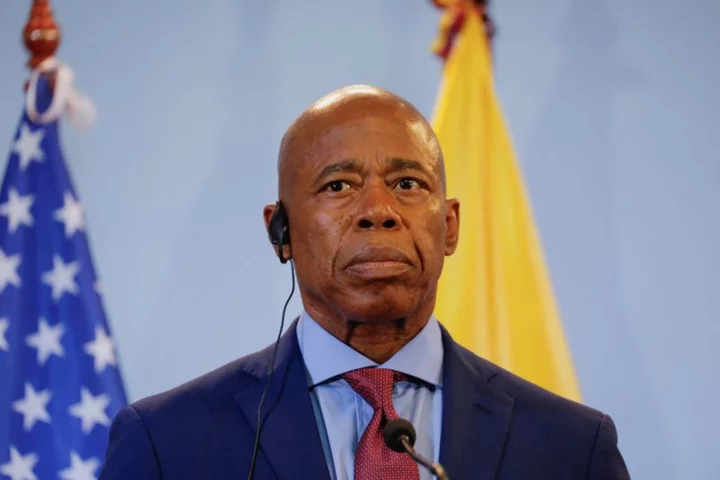
FBI agents seized New York City mayor's electronic devices -NYT
WASHINGTON FBI agents seized New York City Mayor Eric Adams' electronic devices earlier this week, the New York
1970-01-01 08:00

Game of Thrones star Thor Bjornsson announces ‘unbearable loss’ of baby after stillbirth
Game of Thrones star Hafþór Júlíus Björnsson has announced that he and his wife, Kelsey Henson, experienced the “unbearable loss” of a stillbirth. In a joint Instagram post shared on 10 November, the actor - known for his role as “The Mountain” in the HBO drama series - revealed that his daughter Grace Morgan Hafthorsdottir was delivered at 21 and a half weeks. “It is with great sorrow that we announce the birth of our daughter, Grace Morgan Hafthorsdottir born Nov 8th at 21 1/2 weeks gestation,” the couple captioned the post. “After a noticeable decrease in movement we found out her heart had stopped beating,” Björnsson and Henson continued. “Words cannot describe our pain of this loss or our happiness at being able to spend time with our daughter. She is absolutely beautiful, with blonde lashes and brows and a little smile for mom and dad.” “The love we feel for her is overwhelming. The grief we feel will be with us forever but so will the love. All of our hopes and dreams for her have been taken away from us but I know I will be with her again,” they added. “Her spirit lives on through us and her siblings. We ask that you respect our privacy at this time as we grieve this unbearable loss. Thank you all for any kind words and support.” Björnsson and Henson shared several photographs from the hospital, including images of baby Grace. The 34-year-old professional strongman could be seen lying with his wife in the hospital bed, as they looked down at their daughter wrapped in a white cloth. Another image showed the couple’s three-year-old son, Stormur, sitting alongside his mother and holding baby Grace. Many friends and followers took to the Instagram comments to share their condolences for the couple. “So sorry for your loss,” wrote actor Terry Crews in the comments. “My heart goes out to you both and Stormur,” said fellow athlete Martins Licis. “I’m sorry for your loss, and can’t even begin to imagine what you’re going through. May you guys find peace at whatever pace needed by your hearts.” “Thor, I am so sorry. We all love you big man,” added filmmaker Christopher Bell. In October, the pair announced they were expecting another baby with a sweet Instagram post. Their son could be seen standing in front of his parents, wearing a black T-shirt that read "brother” and holding pictures of Grace’s ultrasound. “Life is precious and I couldn’t be happier to announce that our family is growing bigger,” Björnsson captioned the post. “Kelsey is 19 weeks pregnant with a healthy child who we cannot wait to meet!” Björnsson and Henson tied the knot in October 2018 in the actor’s home country of Iceland. In addition to son Stormur, Björnsson also shares daughter Theresa Líf with ex-girlfriend Thelma Björk Steimann. Read More Nicki Minaj opens up about navigating parental anxiety after birth of her son How much water should we be drinking in a day? Irina Shayk reveals how she and Bradley Cooper make co-parenting daughter Lea ‘work’ Nicki Minaj opens up about navigating parental anxiety after birth of her son How much water should we be drinking in a day? Irina Shayk reveals how she and Bradley Cooper make co-parenting daughter Lea ‘work’
1970-01-01 08:00
